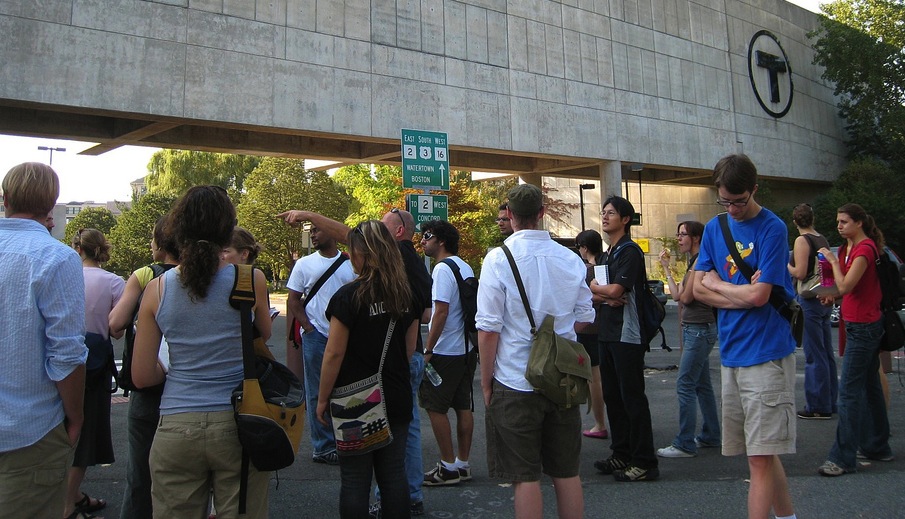
It’s not breaking news that younger generations are finding cheaper and more efficient ways of commuting to work. Contemporary urban trends dictate that people now live in, or in close proximity to, cities because that’s where most of the jobs are. But living in a city like Boston, where parking is perpetually painful to come by and traffic congestion has the ability to enrage even the most tranquil of souls, means cars are quickly becoming obsolete. But will it always be this way?
A recent study published by Brookings examines the idea that car-less municipalities are a trend that may or may not continue as per vehicle usage by generation. In essence, researchers looked into the how frequently generations drive to work, as opposed to public transit or alternative modes of transportation like car- and bike-shares.
Using U.S. Census data, researchers determined that Millennials commute via car the least, while an astounding 82.4 percent of other generations drive. That number, though, is steadily declining and has been for decades; it’s fallen 1.3 percent since 2007 and 3.7 percent since 1983.
Generation X, the one sandwiched between Millennials and Baby Boomers, are joining the former in their collective efforts to use cars less for commuting.
“Generation X commuters are shifting away from private vehicles in nearly equal numbers,” reads the report. “Workers ages 25 to 54 saw their driving rate fall by 0.9 percentage points between 2007 and 2013. That drop equates to roughly 750,000 drivers switching to other modes, which might help explain the stalling number of miles driven across the country.”
The Baby Boomers, and the elderly before them, are apparently stubborn in their way of thinking, actually driving more now than they used to.
But, this could be a consequence of Millennials and Generation X-ers moving into cities more. The Boomers, after all, were the generation that spearheaded suburban living.
“Baby boomers aged 55 and up are the only commuters to consistently drive more since 2007,” the report adds. “As the nation’s older population continues to surge in years to come, however, these commuters will face a host of challenges driving and will likely need to consider more transportation options.”
So while it’s almost common knowledge at this point that the younger generations adopt more feasible means of getting themselves from A to B, while those more acclimated to driving continue to do as such, the future could yield a completely different transportation landscape all together.
This continued independence from cars could pave the way for Boston to focus its infrastructural efforts more on streetscapes and placemaking, allowing for walking to become the predominant commuting method. At least that’s what the folks over at NYU think could happen to Boston come the year 2030.
It’ll be interesting to see if this trend maintains its course in the coming years and what could disrupt it. Surely Millennials would opt for the most fuel-efficient car possible if given the chance – we’re pretty jaded about gas prices, after all. When I got my license it ran close to $2 per gallon – but could they become prevalent enough to make them go out of their way to get a car.

